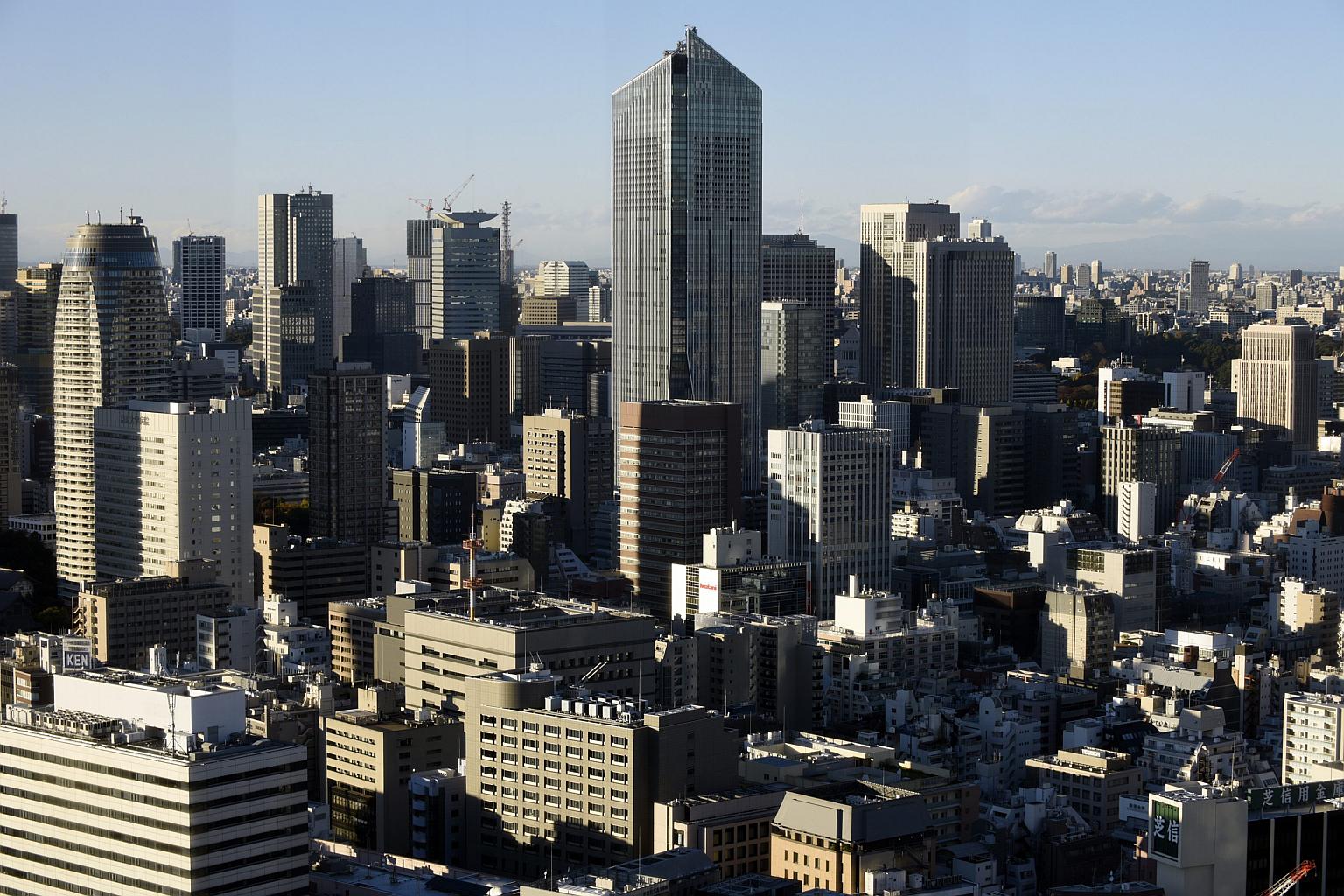Japan firms see yen weakening to at least 13-year lows against US dollar next year
Sign up now: Get ST's newsletters delivered to your inbox

A view of Tokyo, Japan, on Nov 27, 2015.
PHOTO: EPA
Follow topic:
TOKYO (REUTERS) - Japanese firms believe the yen is likely to fall further to least 13-year lows against the US dollar next year, a Reuters poll showed, a move that would exacerbate pain for importers and potentially create headaches for policymakers.
Amid expectations of an imminent US rate hike and monetary easing in Japan sometime next year, nearly 90 per cent of companies in the Reuters Corporate Survey said they think the yen will fall to at least 125 to the US dollar.
That compares with levels of 122-123 yen during the poll period of Nov 20 to Dec 2, and roughly matches a 13-year low of 125.86 marked in June, after which central bank governor Haruhiko Kuroda said it was unlikely to fall further, effectively putting a floor under the currency.
The survey, conducted for Reuters by Nikkei Research, also showed nearly half of the firms expect the yen to decline to 130 to the US dollar or even lower - levels that are expected to sound alarm bells for policymakers.
"The weak yen has led to hikes in the prices of goods and wages have not caught up - hurting households' purchasing power, so the yen at 130 or more would do more harm than good to Japan Inc," said Mr Hidenobu Tokuda, senior economist at Mizuho Research Institute, who reviewed the survey results.
Yen weakness is a boon for many exporters as it inflates the value of earnings garnered abroad and makes exports more competitive. But it also pushes up energy costs, as well as prices of other imports that are painful for companies reliant on raw materials or overseas parts.
"If US interest rate hikes drive further yen weakening, that would be negative for our business which depends highly on purchasing from overseas," wrote a manager at a manufacturer.
The yen has lost over a third of its value since late 2012, due in large part to bold monetary stimulus since Prime Minister Shinzo Abe returned to power. But at the same time, the country's sensitivity to yen weakness has jumped since the 2011 Fukushima disaster led to the shutdown of nuclear reactors, costing the country some US$24 billion (S$33.7 billion) in extra fuel imports annually.
The survey polled 514 big and medium-sized firms. Between 230 and 250 answered questions on dollar/yen rates and the impact of US rate hikes. Managers respond on condition of anonymity.
The poll also suggests that companies are bracing for a more volatile 2016. This year, the dollar/yen has traded at between 115 yen and 125 yen - its narrowest range of the post 1973-floating rates era.
In forecasts for the highest point for the Japanese currency against the greenback next year, 115 yen was the most popular choice, picked by 38 per cent of firms.
But 28 per cent chose 110 yen, while another 21 per cent expect it to rise to 105 or higher.
"A weak yen is positive for our business but the US rate rises have been factored in, so there's a chance it could cause the yen to reverse and rise again," wrote a machinery maker.
The US Federal Reserve is widely expected to raise rates for the first time in almost a decade at its Dec 15-16 meeting. In contrast, the Bank of Japan is expected to expand its already massive asset purchases in 2016 as it seeks to bring the economy away from deflation, with many analysts anticipating action in the coming six months.

